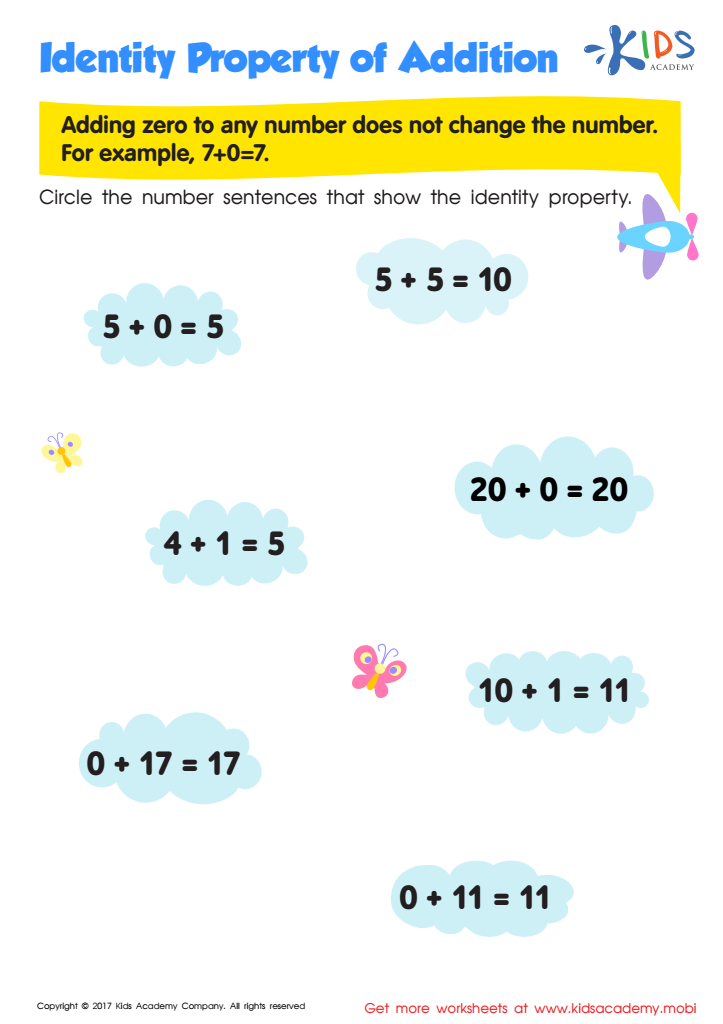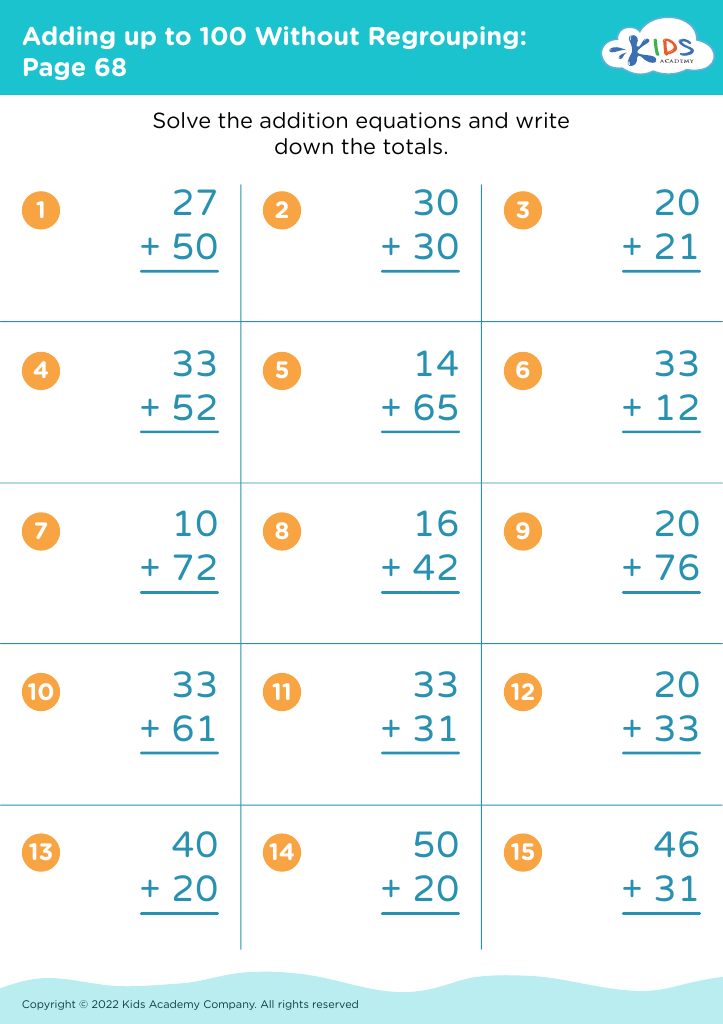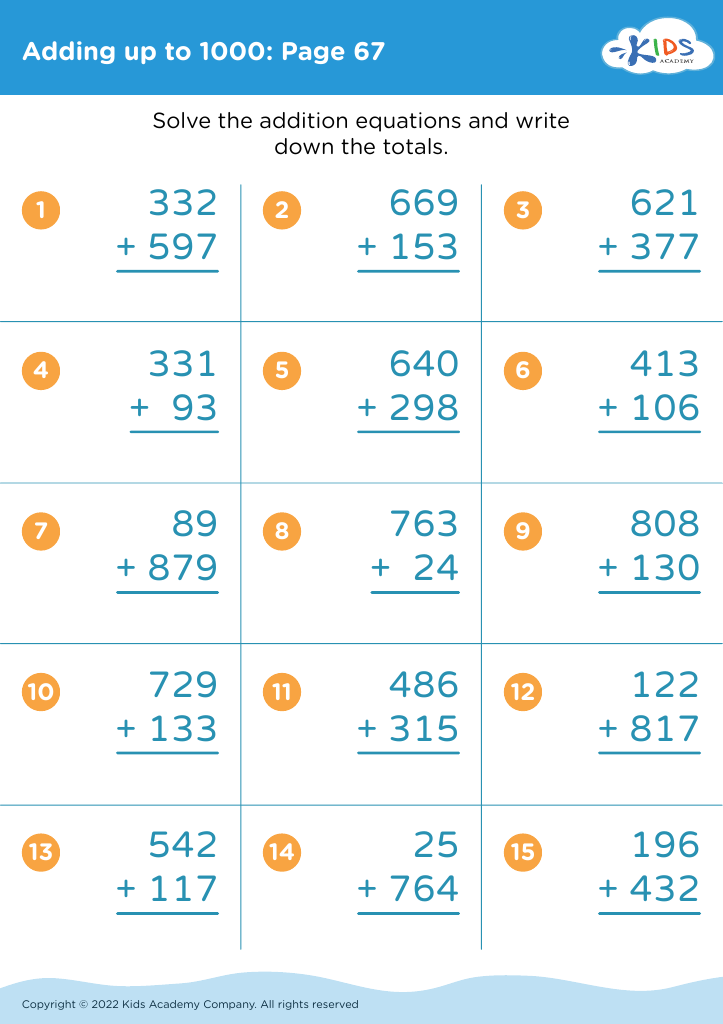Enhancing math skills Addition Worksheets for Ages 4-7
4 filtered results
-
From - To
Unlock your child's potential with our "Enhancing Math Skills Addition Worksheets" designed for ages 4-7. These engaging worksheets provide fun and interactive ways to practice addition, helping young learners develop essential math skills. Each worksheet is thoughtfully crafted to encourage problem-solving, critical thinking, and number fluency through colorful visuals and age-appropriate challenges. Whether in the classroom or at home, our resources are perfect for boosting confidence and making math enjoyable. Help your child build a strong foundation in mathematics and prepare them for future success with these effective and accessible addition worksheets. Explore our collection today!


Identity Property of Addition Worksheet
Enhancing math skills, particularly addition, for children aged 4-7 is crucial for their cognitive and social development. During these formative years, kids are developing foundational concepts that pave the way for future academic success. Early exposure to addition helps children understand basic arithmetic, enabling them to solve problems and develop critical thinking skills. This confidence in math is instrumental as they progress in school, reducing math anxiety and fostering a positive attitude towards learning.
Additionally, mastering addition facilitates skills in everyday life, such as budgeting, time management, and measurement, making math both practical and meaningful. It also encourages logical reasoning and helps develop a mental framework necessary for grasping more complex mathematical concepts in later grades.
Engaging with addition through interactive activities can enhance parent-child bonding, making learning enjoyable and impactful. Teachers play a vital role by incorporating playful methods and diverse resources to cater to different learning styles.
Ultimately, nurturing math skills in young children contributes to their overall academic achievement, boosts self-esteem, and equips them with essential life skills. Parents and teachers who prioritize this aspect of education are laying a strong foundation for future learning. Investing time in enhancing addition skills today shapes capable and confident learners tomorrow.


 Assign to My Students
Assign to My Students





















